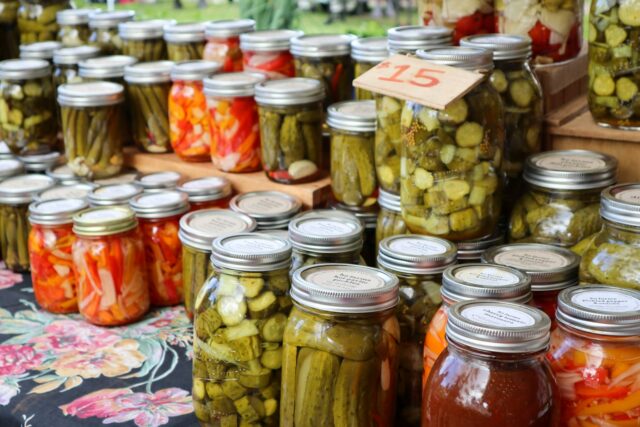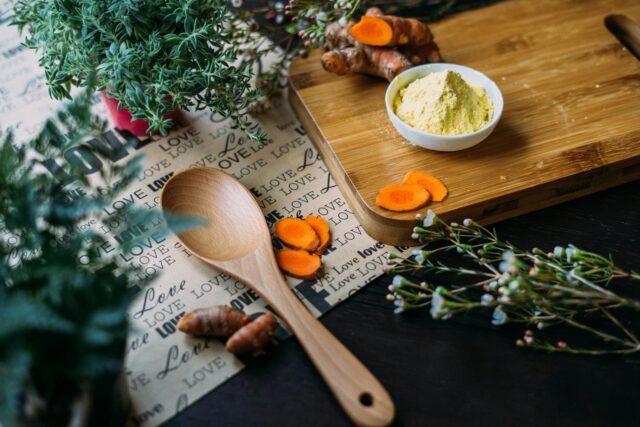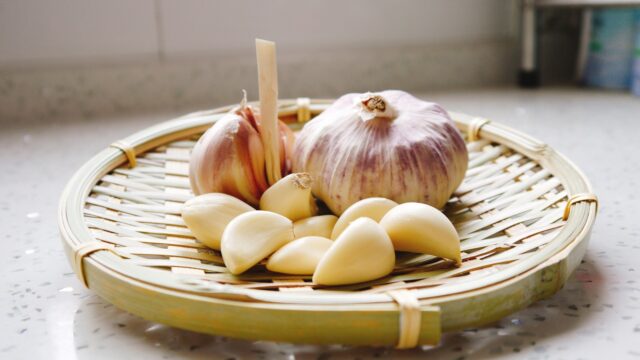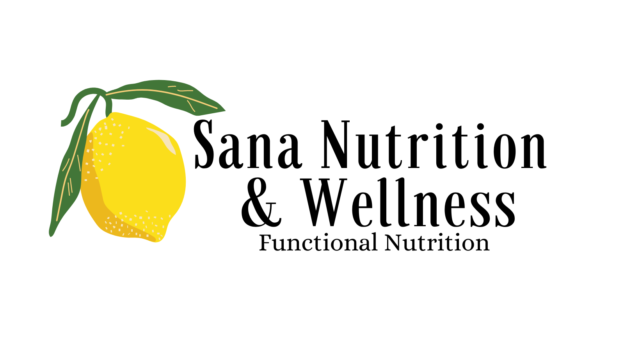A Guide to Gut Health
Ok, By now, you probably know why having a healthy, well-functioning gut is so important. We all know that our gut isn’t just about digesting that extra slice of pizza—it’s the epicenter of our overall health. When it’s out of whack, it can lead to chronic health and mental health issues. A balanced gastrointestinal (GI) tract can influence everything from your mood to your immune system and even your inflammation levels. In other words, a happy gut means a happier you!
Why a Healthy Gut Matters
Before we break down the foods, let’s chat about why a healthy GI tract is so important. Our gut houses trillions of bacteria—the gut microbiome. These tiny friends help us digest food, produce vitamins, fight off harmful bacteria, and even influence our mood and inflammation levels.
When your gut is off balance—perhaps due to a poor diet, stress, toxins, or overuse of antibiotics—it can lead to dysbiosis (imbalanced gut bacteria), increased inflammation, and issues like leaky gut syndrome. This “leakiness” can let unwanted particles like food protein and toxins slip into your bloodstream, sparking an immune reaction and causing inflammation, which contributes to a host of health problems like autoimmune issues and chronic fatigue. By nourishing and healing your gut, you’re taking a crucial step toward better overall health, improved digestion, and reduced inflammation.
Our GI tract is a beautiful and complex system, but healing it is pretty straightforward. You remove what could be causing damage, add back in what helps you heal and digest, work to mend the lining, and nourish so you can flourish! (Feel free to read more about that here if you’re curious.) We must get back to the basics and eat nourishing, healing foods to support your healing journey. Here are 12 amazing foods that can help heal your gut, neatly divided into three categories of healing. And while you might not eat them separately in every meal, I wanted you to understand the power and purpose of each category—knowledge is power, my friend!
- Foods that balance GI bacteria and replace needed enzymes for digestion
- Foods that support the gut lining and mucosal lining
- Foods to nourish and feed healthy bacteria
Let’s explore how these foods work their magic in your digestive system!

Foods That Balance GI Bacteria and Support Digestion
This first category is all about foods that help balance your gut bacteria while supplying enzymes to boost digestion. These foods keep the “bad guys” in check and ensure you’re getting the most out of your meals.
1. Kimchi
Kimchi is a spicy, tangy Korean staple made from fermented veggies (usually napa cabbage and radishes) with a mix of seasonings. Fermentation creates a treasure trove of probiotics that balance your gut flora, and it’s also packed with fiber and vitamins A, B, and C.
Why it’s awesome:
- Probiotics: Boosts good bacteria and aids digestion.
- Antioxidants: Fights inflammation and oxidative stress.
- Flavor: Adds a zesty kick to any dish!
- I Love this kimchi!
2. Sauerkraut
If you love a crunchy, tangy taste, sauerkraut is for you. Made from fermented cabbage, it’s loaded with probiotics that enhance your gut microbiome, it’s also fiber and vitamins C and K.
What makes it great:
- Digestive Support: Live cultures help restore balance in your gut.
- Immune Boost: Vitamin C strengthens your immune system.
- Versatile: Great on sandwiches, hot dogs, or as a side.
- I lobe thie delicious artisanal sauerkraut
3. Kefir
Kefir is a fermented dairy (or non-dairy) you can drink like a smoothie for your gut. It contains a variety of probiotic strains that aid digestion and boost immunity. Its enzymes help break down lactose, making it friendly for many lactose-intolerant folks.
What makes it great:
- Digestive Enzymes: Helps break down food efficiently.
- Probiotic Variety: Offers a broad spectrum of beneficial bacteria.
- Bone Health: Often rich in calcium and vitamin D (if dairy-based).
- You can typically find kefir in your grocery store with the yogurt or make it yourself with this starter.
4. Papaya
Papaya isn’t just a tropical treat—it’s an enzyme powerhouse. It contains papain, an enzyme that helps digest our food.
What makes it great:
- Enzymatic Aid: Papain helps digest proteins.
- Nutrient-Dense: Loaded with vitamins A and C, plus folate.
- Anti-inflammatory: Packed with antioxidants to help reduce inflammation.
- Try getting frozen papaya for your smoothie or these papaya enzyme chewables
(Psst—there are plenty of other probiotic foods like yogurt, kombucha, Fermented pickles and even sourdough bread that you can enjoy!)

Foods That Support the Gut Lining and Mucosal Lining
A robust gut lining is your body’s frontline defense. It acts as a barrier that lets nutrients in while keeping harmful substances out. The mucosal lining in your intestines is equally essential, serving as a protective, slippery shield against irritants. When these linings are strong and well-supported, your gut can better ward off issues like leaky gut syndrome. Here are four foods to help support these vital layers.
5. Bone Broth
When you slow-simmer bones, you release collagen, gelatin, and amino acids like L-glutamine, proline and glycine. These components work together to reinforce your gut barrier and soothe inflammation.
What makes it great:
- Collagen-Rich: Provides building blocks for your gut’s connective tissue.
- Digestive Soother: Gelatin supports a healthy mucosal lining and aids digestion.
- Mineral Boost: Delivers essential minerals like calcium, magnesium, and phosphorus.
- You can buy bone broth, use a powdered kind, or make it yourself.
6. Turmeric
Turmeric, is a potent anti-inflammatory food. Its active compound, curcumin, helps reduce inflammation and supports the integrity of your gut and mucosal lining. Just remember to pair it with black pepper for enhanced absorption! You can add this spice to your smoothies, tea, or dishes; supplementation is also helpful.
What makes it great:
- Anti-inflammatory: Helps soothe chronic inflammation in the gut.
- Antioxidant-Rich: Fights oxidative stress.
- Versatile: Great in soups, teas, or sprinkled over roasted veggies.
- Add the spice to your food or you could take a supplement
7. Ginger
Ginger is that zesty root you probably already have in your pantry. It’s been used for centuries to calm the stomach and aid digestion. With its natural anti-inflammatory properties, ginger helps support the gut and mucosal lining by stimulating saliva, bile, and digestive enzymes.
What makes it great:
- Digestive Kick-Starter: Promotes enzyme production for better digestion.
- Soothing Effect: Calms irritation in the gut lining.
- Nausea Relief: Perfect for settling an upset stomach.
- Try a ginger tea, the spice ginger or fresh ginger
8. Aloe Vera Juice
Yes, aloe isn’t just for sunburns! Aloe vera juice supports your gut by reducing inflammation and helping maintain the integrity of the gut and mucosal lining. It’s gentle on the stomach and can soothe irritation. You can add this juice to smoothies and salad dressings or mix it with tea or water. Start slow with 1-2 oz, and consult your healthcare provider if you have kidney or liver disease.
What makes it great:
- Calming: Helps soothe and protect the gut lining.
- Hydrating: Keeps the digestive tract moist and resilient.
- Nutrient-rich: Offers vitamins, minerals, and amino acids that support gut health.
- Try this edible-grade aloe vera juice!

Foods to Feed and Nourish Healthy Bacteria
For the final category, we’re talking about prebiotic foods—those that serve as fuel for the beneficial bacteria in your gut. By feeding these microbes, you’re ensuring your gut flora remains diverse and robust.
9. Garlic
Garlic is delicious and a prebiotic powerhouse. It contains natural compounds that help fend off harmful bacteria while nourishing the good guys. Plus, its anti-inflammatory effects benefit overall health.
What makes it great:
- Prebiotic Fiber: Feeds beneficial gut bacteria.
- Antimicrobial: Helps balance the gut microbiome.
- Heart Healthy: Its anti-inflammatory properties also support cardiovascular health.
- Fresh or close to fresh is the most potent form of garlic. Try this jarred garlic.
10. Onions
Like garlic, onions are fantastic for feeding your gut bacteria. They’re rich in inulin—a type of prebiotic fiber that nurtures your beneficial microbes—and also loaded with antioxidants to combat inflammation.
What makes it great:
- Inulin Boost: A prebiotic fiber that promotes a healthy gut.
- Antioxidant-Rich: Fights oxidative stress.
- Flavorful: Elevates the taste of a variety of dishes.
- Inulin Supplements
11. Berries
Berries are not only a delicious grab-and-go snack but also pack a powerful punch of polyphenols—natural antioxidants that support gut health. These little gems help nourish beneficial gut bacteria, reduce inflammation, and contribute to overall digestive well-being. Whether you’re reaching for blueberries, strawberries, raspberries, or blackberries, you’re adding a burst of vitamins, fiber, and antioxidants to your diet.
What makes berries great:
- Polyphenol Power: Their high polyphenol content helps reduce inflammation and supports a diverse, thriving gut microbiome.
- Antioxidant Boost: Loaded with antioxidants, berries help combat oxidative stress and protect your cells.
- Nutrient-Packed: They’re rich in vitamins, minerals, and fiber, which are essential for overall health and digestion.
- Energy & Versatility: Low in calories but high in flavor, berries are perfect for snacking, topping your yogurt or oatmeal, or blending into a refreshing smoothie.
- Getting Polyphenols in food is best, but a supplement can give you a boost
12. Asparagus
Asparagus is a wonderful prebiotic containing vegetable, it’s also rich in inulin and other prebiotic fibers that nourish your gut’s beneficial bacteria. Plus, it’s a great source of vitamins A, C, E, and K, and folate, which are essential for overall health.
What makes it great:
- Prebiotic Power: Inulin feeds your beneficial gut bacteria.
- Low-Calorie: Nutrient-dense and perfect for a light, healthy meal.
- Antioxidants: Help combat inflammation and oxidative stress.
Healing Your Gut
There you have it—12 powerhouse foods divided into three categories to help you support and heal your gut. Let’s do a quick recap:
Balancing & Enzyme Boosters:
- Kimchi, Sauerkraut, Kefir, and Papaya
Supporting the Gut and Mucosal Lining:
- Bone Broth, Turmeric, Ginger, and Aloe Vera Juice
Nourishing Healthy Bacteria:
- Garlic, Onions, Bananas, and Asparagus
Each of these foods plays a unique role in your gut’s health—from balancing the microbiome and supplying essential digestive enzymes to fortifying your gut’s protective barriers and feeding beneficial bacteria.
A healthy gut is a cornerstone of overall wellness. Not only does it improve digestion, but it also supports your immune system, reduces inflammation, and can even enhance your mood. Integrating these 12 foods into your daily or weekly meal plan to support a stronger, more resilient digestive system.
Remember, you don’t need to overhaul your entire diet overnight. Start small by incorporating one or two of these foods into your meals, and gradually build up your gut-healing arsenal. Think of your gut like a garden that needs a little extra care, nurturing, and a sprinkle of these nutrient-rich foods to truly thrive.
Cheers to your health, happy eating, and a gut that supports your overall well-being and happiness!
Feel free to leave a comment below with your thoughts or share your favorite gut-healing food.
Want More Gut healing and Anti-inflammatory tips? Download my free anti-inflammatory guide.
This post contains affiliate links, which means I may earn a small commission if you make a purchase through these links—at no extra cost to you. Thank you for supporting my work!.




